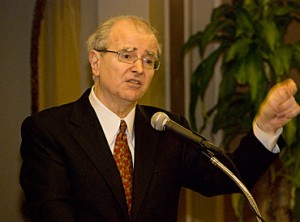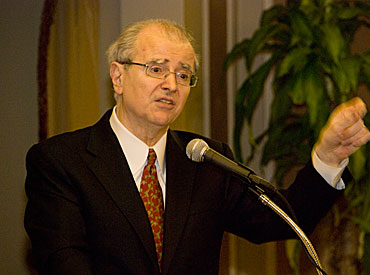 New York’s top judge is calling on the state to break with a long-held practice of trying all 16- and 17-year olds as adults and instead to seek ways to rehabilitate them.
New York’s top judge is calling on the state to break with a long-held practice of trying all 16- and 17-year olds as adults and instead to seek ways to rehabilitate them.
Judge Jonathan Lippman, the chief of the state court of appeals, wants 16- and 17-year-olds accused of less serious crimes to be transferred to family courts. It is a move that would require a reorganization of the state’s juvenile justice system and would have to be approved by Gov. Andrew Cuomo, a Democrat, and the state Legislature. While the state Assembly is controlled by Democrats, the Senate is majority Republican.
Democratic lawmakers in New York have been generally supportive of reforming the measure in the past, while Republicans have for the most part opposed it.
The New York Times reports that Lippman will call on the state’s sentencing commission to prepare a bill that would be introduced in the Legislature at the beginning of the session in 2012. Lippman, the Times reports, will also establish pilot programs in the meantime that will deal with defendants aged 16 and 17.
The current law in New York has been in place since 1962. There have been many failed efforts to reform it in the past.
Judge Lippman tells the paper this time around he will turn not to lawmakers, but to an informal network of supporters and advocates to push the reforms through.
As Lippman told the Times, “I don’t think we should be studying this to death.”
New York is not alone in its efforts to reform its juvenile justice system. The state legislature in North Carolina, the only other state in the nation that tries all 16-year-olds as adults, made moves recently to pass measures that would transfer these defendants to juvenile and family court.
Thirty seven states set the age of majority at 18 while 11 states put the age at 17. Georgia, where 17-year-olds are considered adults in criminal prosecution, is set to consider a rewrite of the state's juvenile code when the legislative session there begins in 2012.
While some reforms nationwide have been driven by a desire to save money at a time of budget tightening at the state level, the change in New York would be costly, according to the Times. Transferring more people to the juvenile system, with its many social services, could cost the state more, something that could stir opposition among some lawmakers.
Last year, more than 45,000 teens aged 16 and 17 were arrested for a variety of offenses in New York.

The juvenile justice system absolutely needs to be reformed. It should focus entirely on rehabilitation, especially with younger offenders.